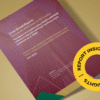
The European Commission’s proposed revision to the Tobacco Excise Directive (TED) is not only misguided, but also dangerously absurd. Under the guise of protecting public health, the Commission is proposing punitive taxes on vaping products, nicotine pouches, and other safer nicotine alternatives that are helping millions of people quit smoking. If adopted, these measures will turn harm reduction on its head and risk locking in and potentially increasing smoking rates across the continent for another generation.
It should be noted that nothing in these proposals has been agreed yet. They are merely a suggestion by the Commission. But make no mistake, if EU member states approve them, the consequences will be deadly.
Under the proposed changes, e-liquids with nicotine content above 15mg/mL would be taxed at a staggering 40 percent of the retail price or €0.36 per millilitre. Nicotine pouches would be hit with a 50 percent retail tax or €143 per kilogram. Even lower-strength products would face hefty minimum rates. Aside from taxing high nicotine products more heavily despite they’re being the most effective in helping smokers to quit (in many countries), this will make safer alternatives more expensive than cigarettes. This is undoubtedly a public health travesty.
EU Health Commissioner Oliver Varhelyi, claims the justification is that “new tobacco and nicotine products pose health risks comparable to traditional ones.” This is categorically false and disinformation. There is overwhelming scientific consensus – supported by years of peer-reviewed research and real-world data – that safer nicotine alternatives are orders of magnitude less harmful than combustible cigarettes. To pretend otherwise is either a display of profound ignorance or a deliberate attempt to mislead.
Varhelyi’s comments have been backed by the World Health Organization’s (WHO’s) Regional Director for Europe, Hans Kluge, who has stated his intent to “advance tobacco control, with a focus on the harms of vaping.” But what harms, exactly? Vaping is not harmless, but its risks pale in comparison to smoking. The Commission couldn’t invent a more backward health strategy if it tried.
Instead of confronting smoking head-on, the EU and WHO are declaring war on harm reduction, and in doing so, giving cigarettes a lifeline. It is baffling that supranational institutions charged with improving public health are so determined to kneecap the very tools that are helping people quit smoking.
The EU press release claims that “increasing minimum EU tax rates is urgently needed” to help achieve the European Cancer Plan’s 2040 goal of a “tobacco-free Europe.” Yet what they’re proposing will do the exact opposite. Taxing safer alternatives into oblivion while leaving cigarettes relatively cheaper is not a cancer plan, it’s a pro-smoking policy.
The hypocrisy is galling. Sweden, which has kept snus exempt from the Directive under its EU accession treaty, has by far the lowest smoking rates in Europe, around 5 percent compared to the EU average of 24 percent. Sweden didn’t get there by demonising alternatives. It succeeded by encouraging the switch to safer products. But instead of studying and replicating this success, the EU seems determined to bury it.
Even more jaw-dropping is the Commission’s stated goal to “reduce the attractiveness” of safer products as alternatives to tobacco. In other words, they want to make the healthier choice less appealing. That isn’t public health, that’s policy malpractice.
If the UK needed a reminder of the benefits of Brexit, this might be it. No longer bound by the EU’s ill-conceived directives, the UK now has the freedom – and arguably the duty – to chart a different course. The UK government should send a clear message that it will not pass laws that harm its citizens’ health simply to mimic Brussels’ backward thinking.
And there are other consequences. High tobacco taxes have long been a magnet for black market activity across Europe. This revision of the TED risks fuelling illicit trade in nicotine, creating yet another incentive for organised crime. Criminals won’t worry about excise duty, they’ll flood the market with untaxed and unregulated products, putting consumers at further risk and undermining the rule of law.
But perhaps most troubling of all is the human cost. Every one of these proposals reduces the appeal of quitting cigarettes via safer alternatives. Every excessive tax, every unfounded claim about comparability of risk, every policy designed to make vaping or pouches more expensive, all of it puts up new barriers for people trying to escape the deadliest nicotine product of all – cigarettes.
This isn’t just a failure of policy, it’s a moral failure. We know how to reduce smoking. We have the tools. We have the data. What we seem to lack, at the EU level, is the political courage to act on evidence rather than ideology.
If the EU is serious about beating cancer, reducing noncommunicable diseases, and achieving a smoke-free future, it must embrace tobacco harm reduction, not destroy it. The Commission’s proposals must be rejected by member states before more lives are lost to institutional dogma and wilful blindness.
Martin Cullip is International Fellow at The Taxpayers Protection Alliance’s Consumer Center and is based in South London, UK.




